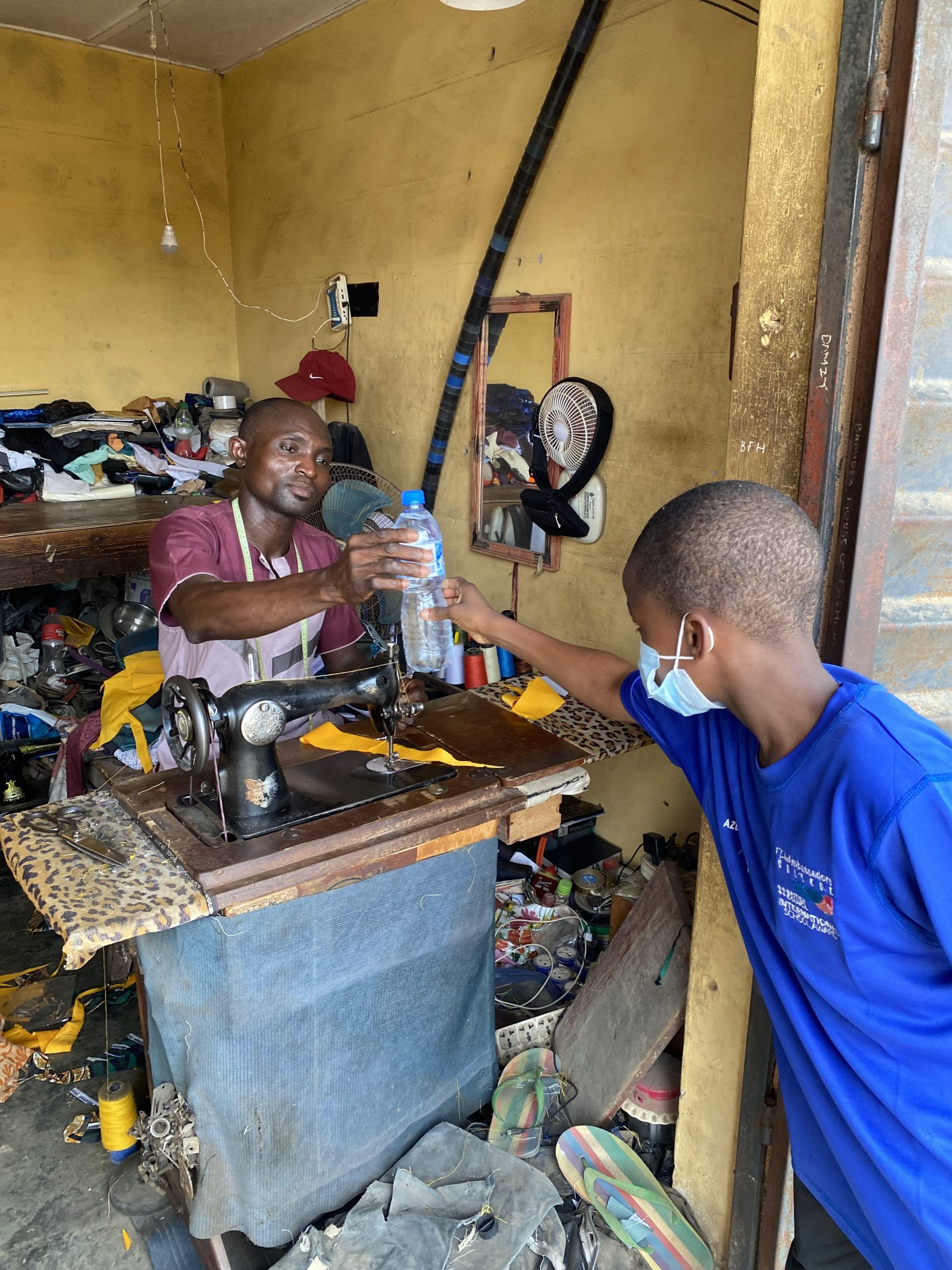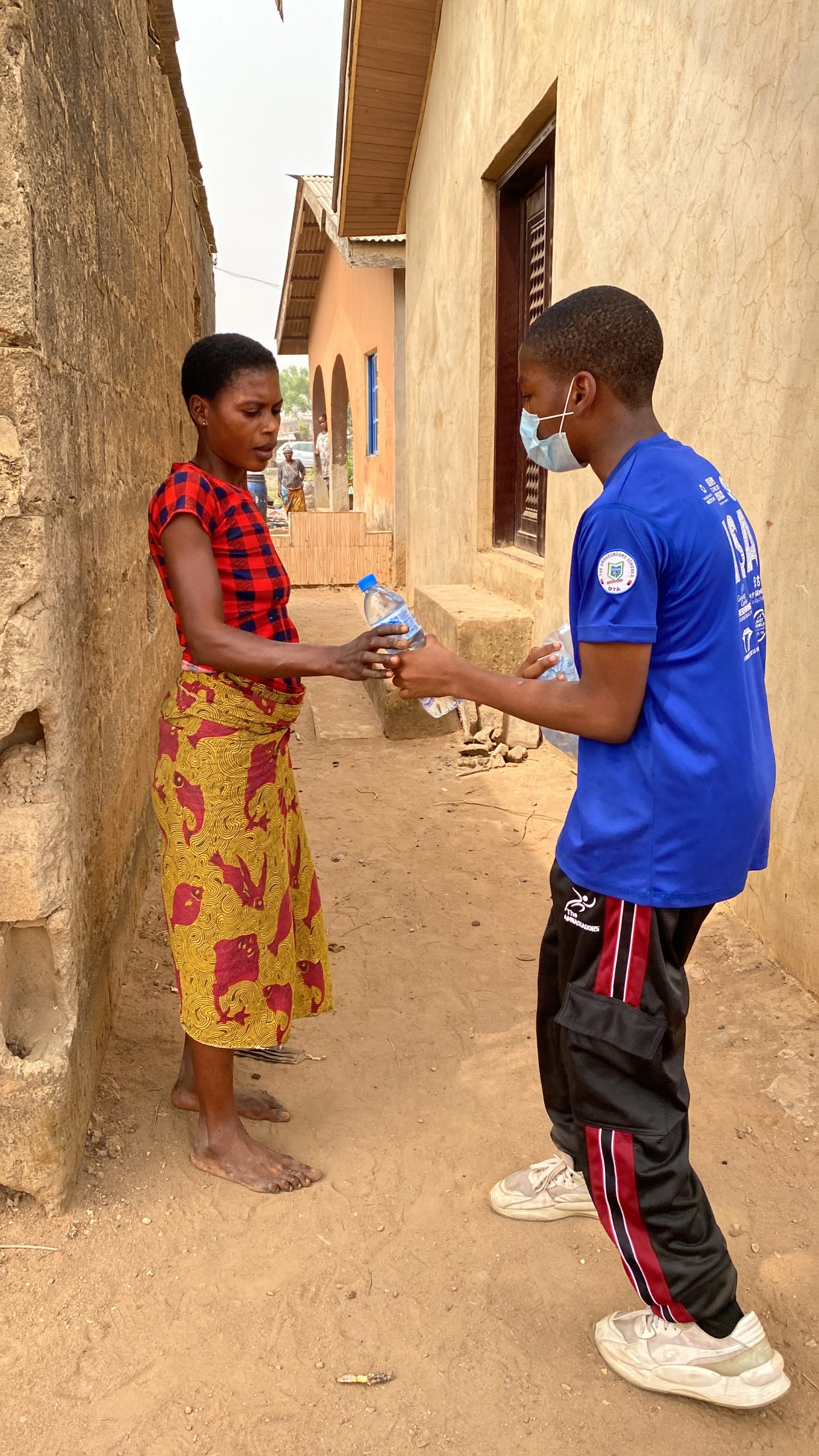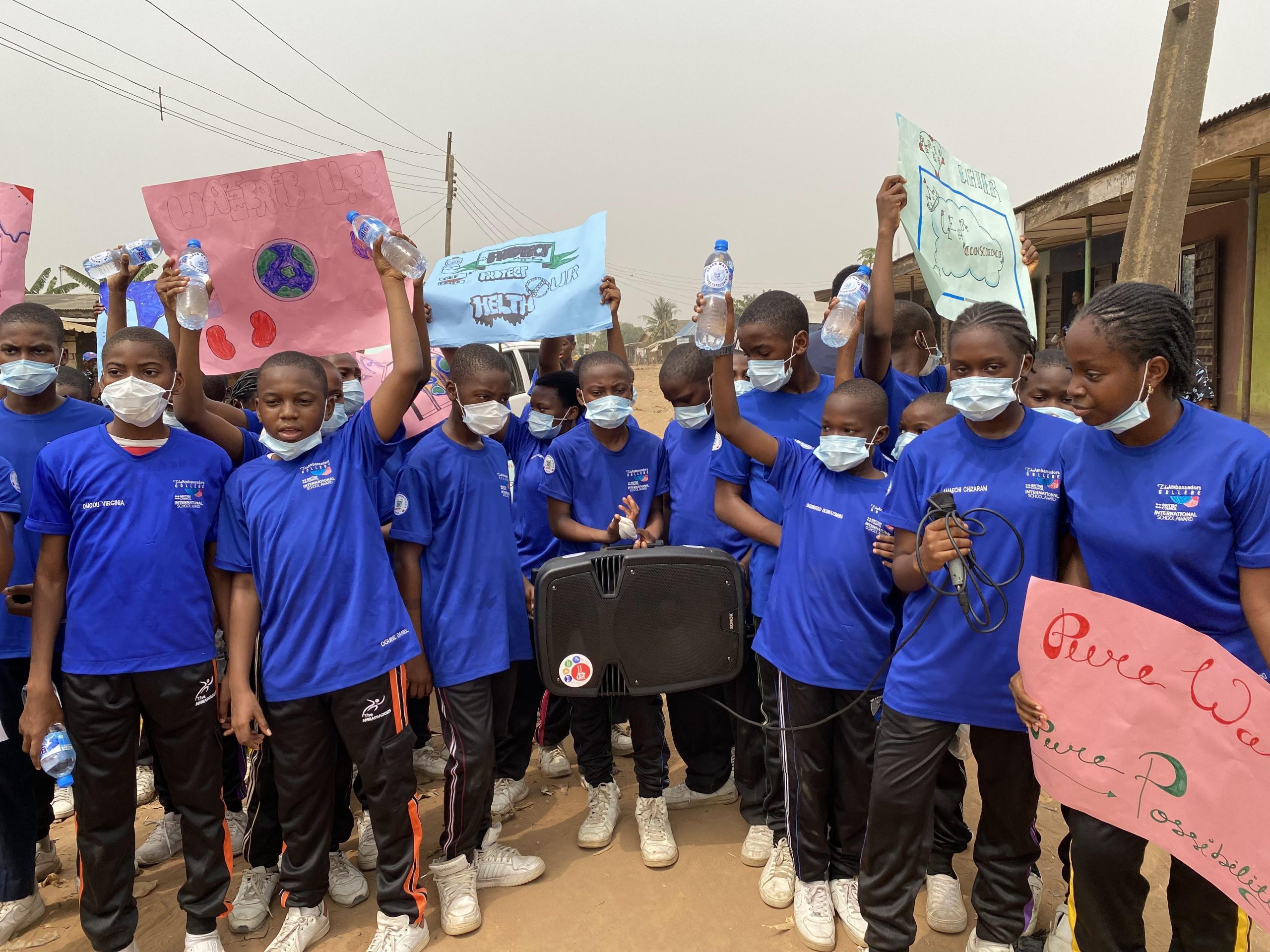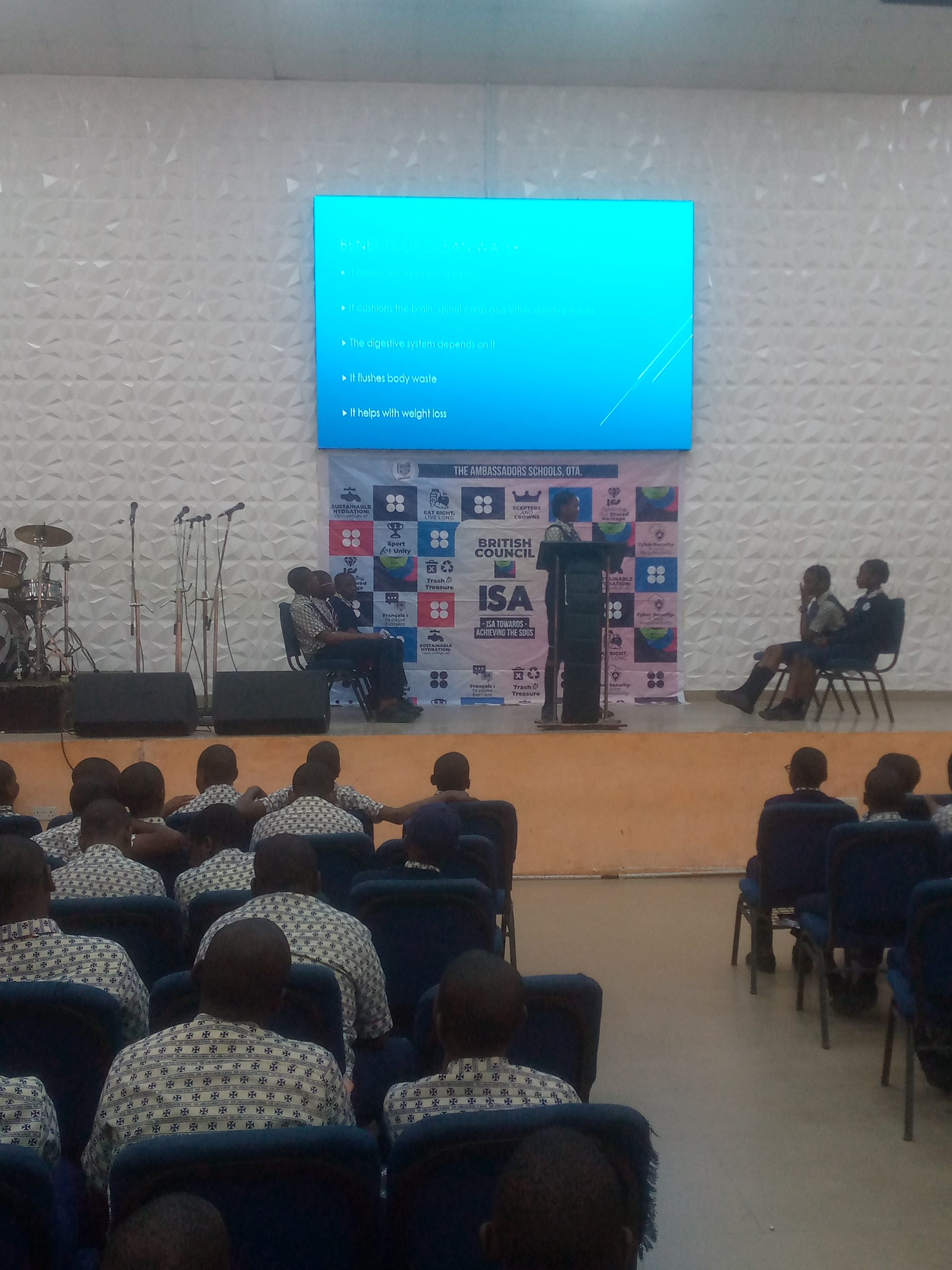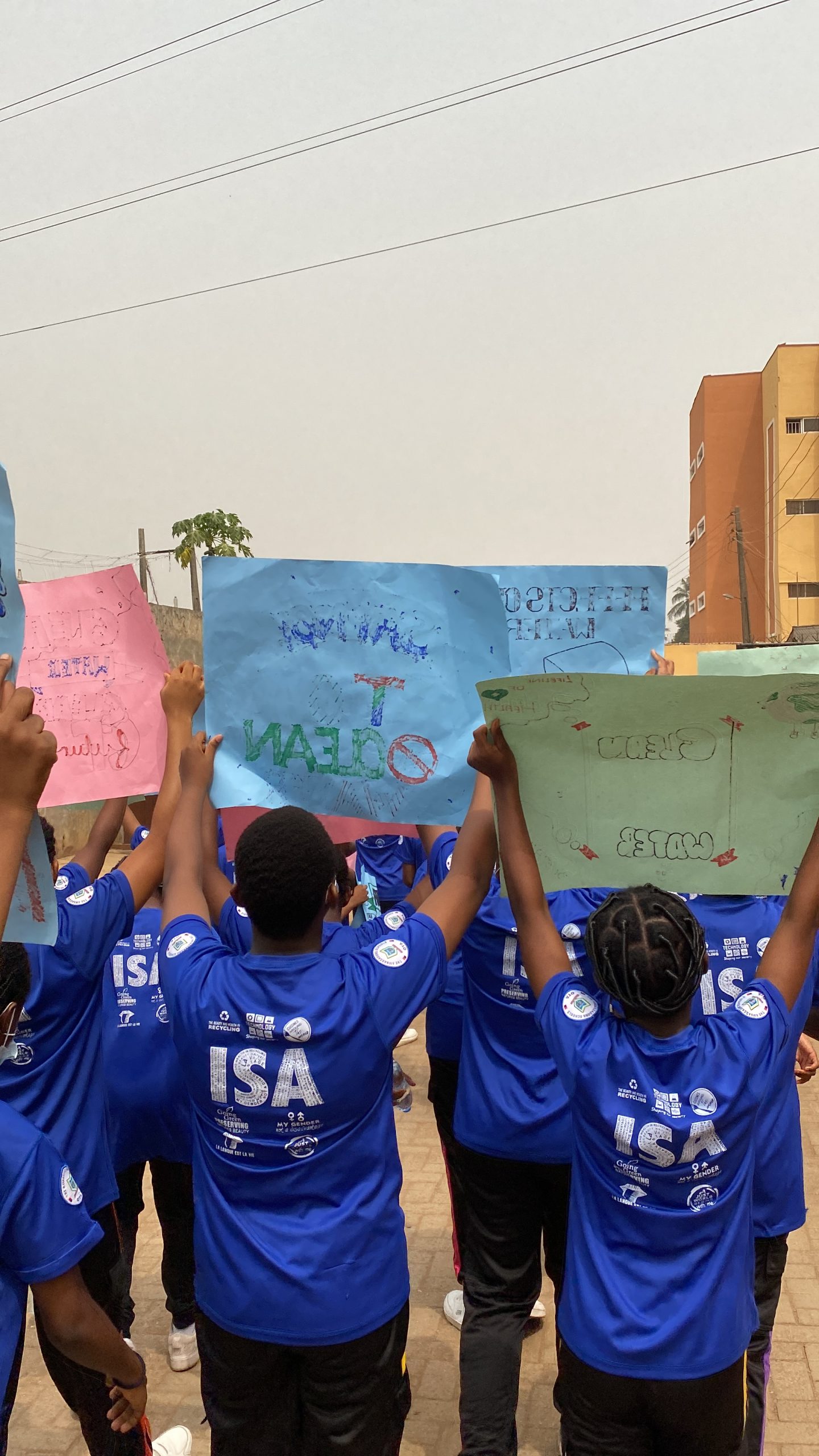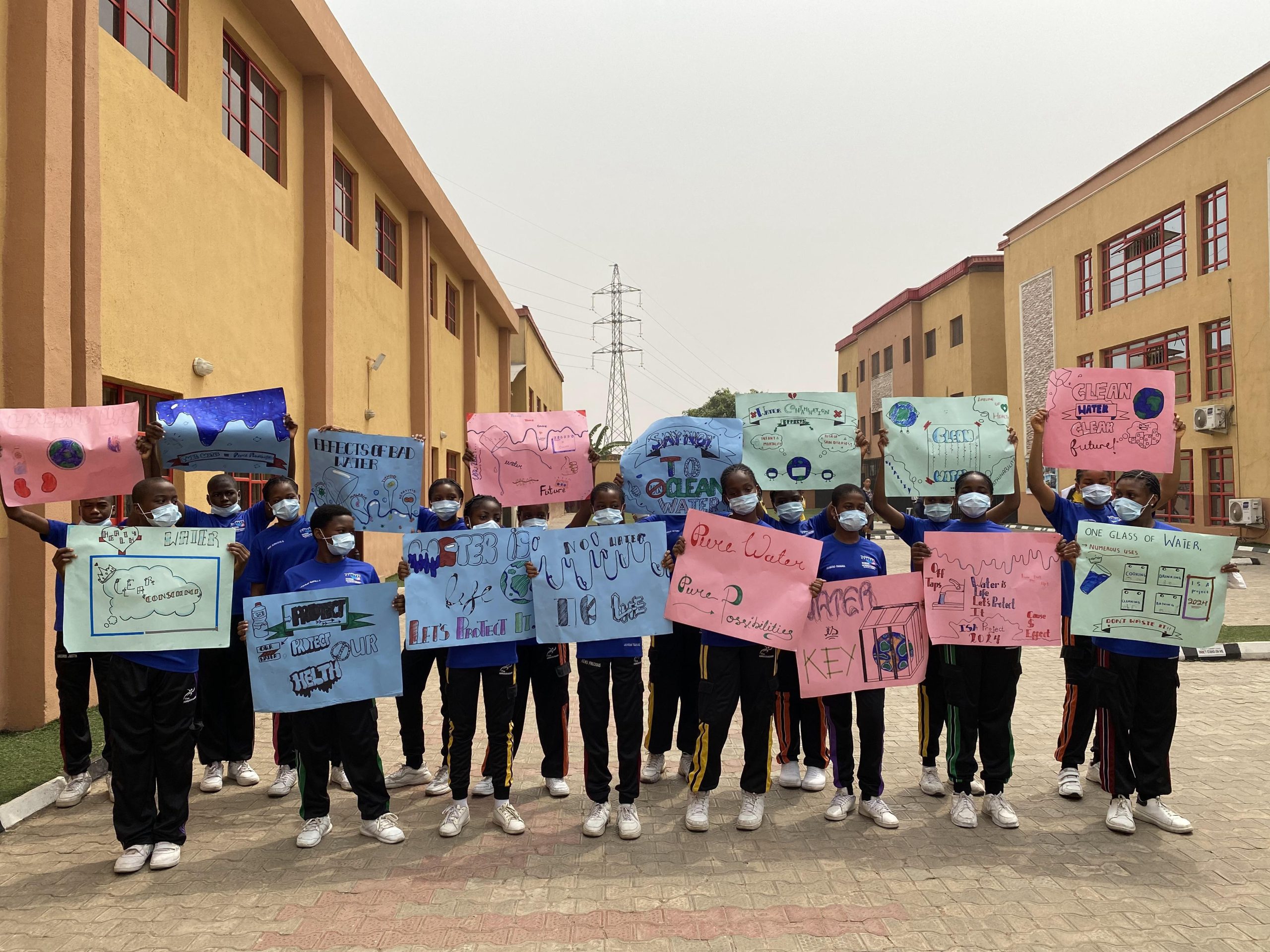Sustainable Hydration: Clean water for all.
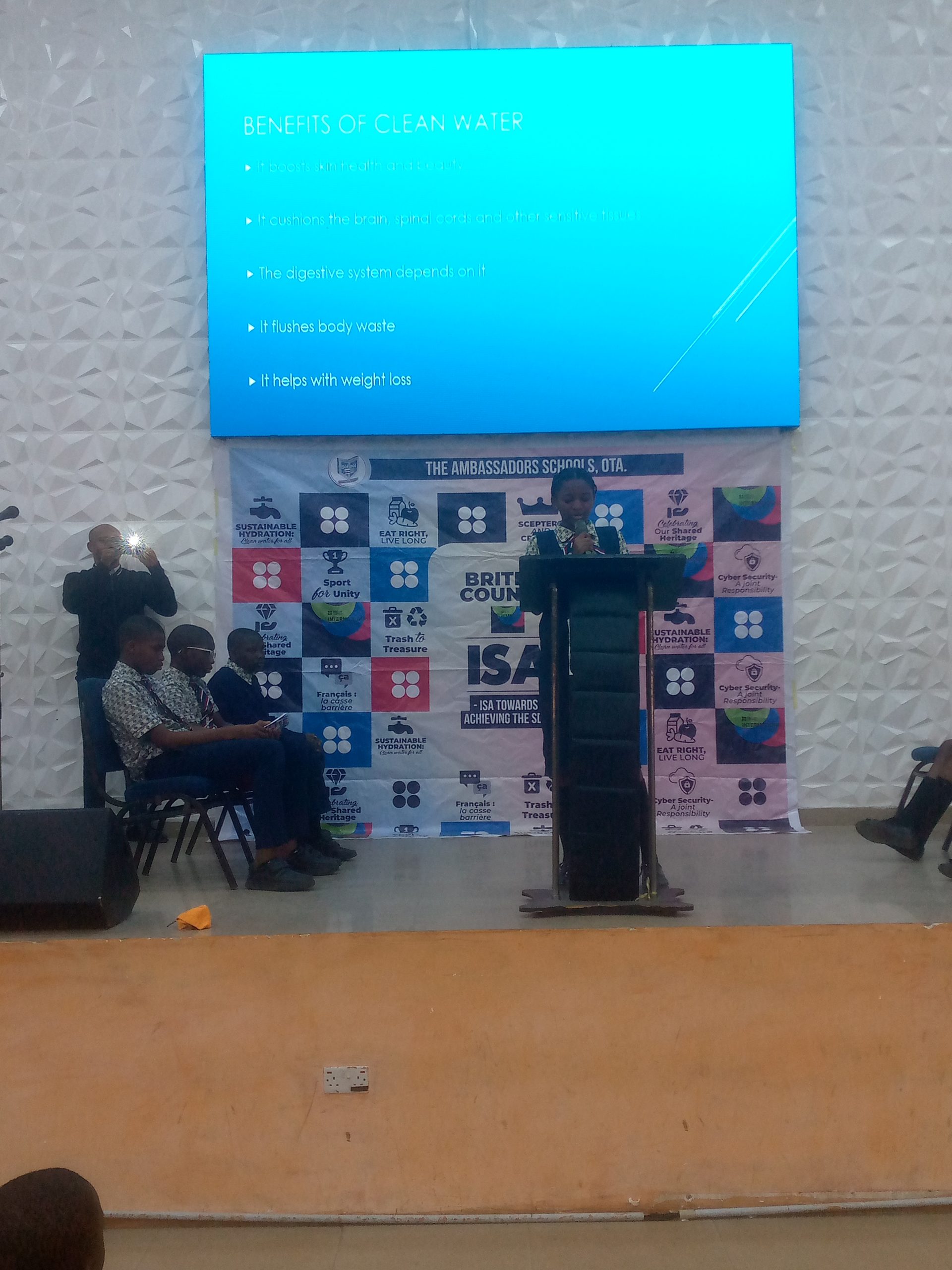
Students presentation on water related problems faced by selected countries
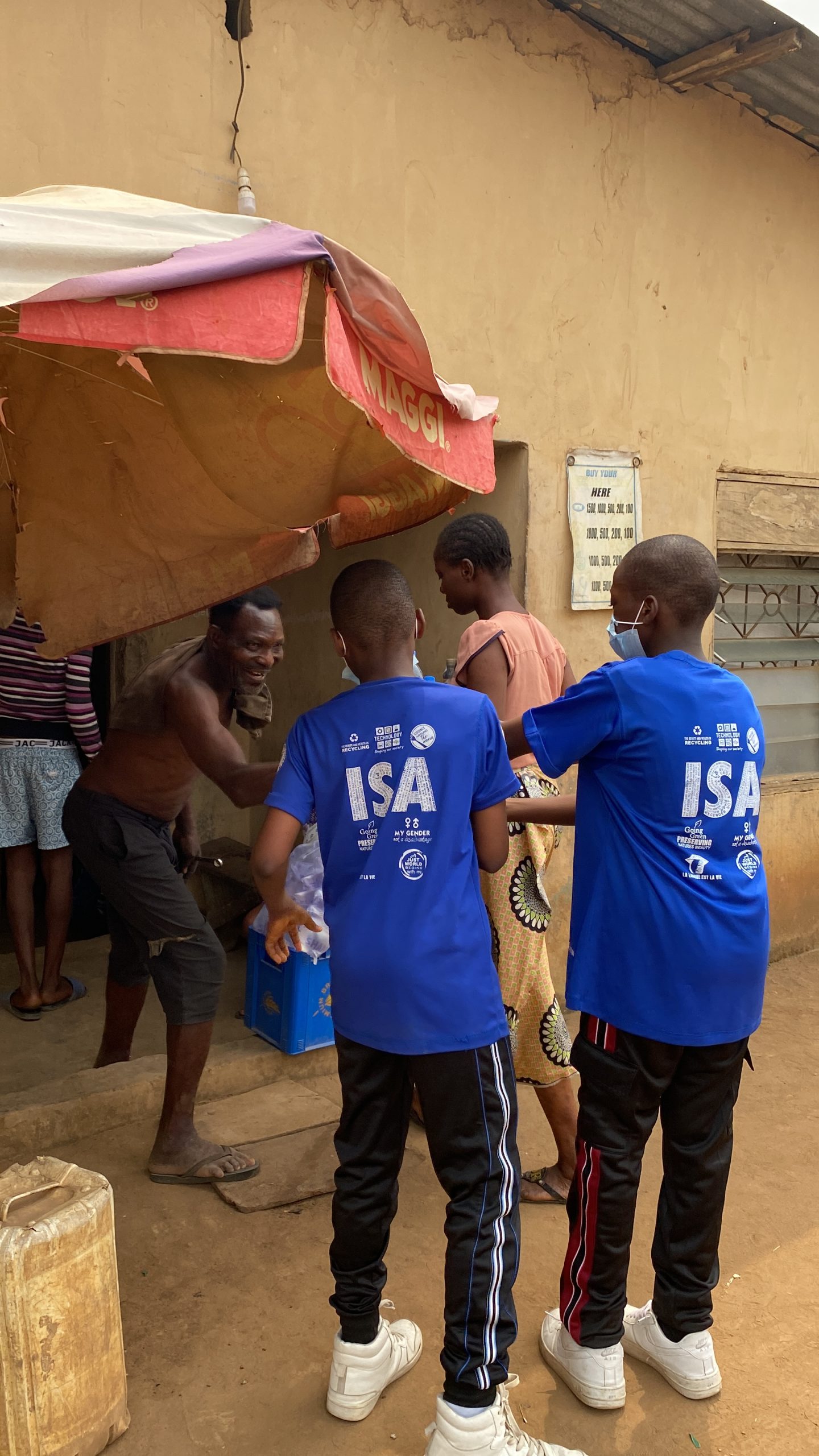
Students advocating for the importance of clean and safe water
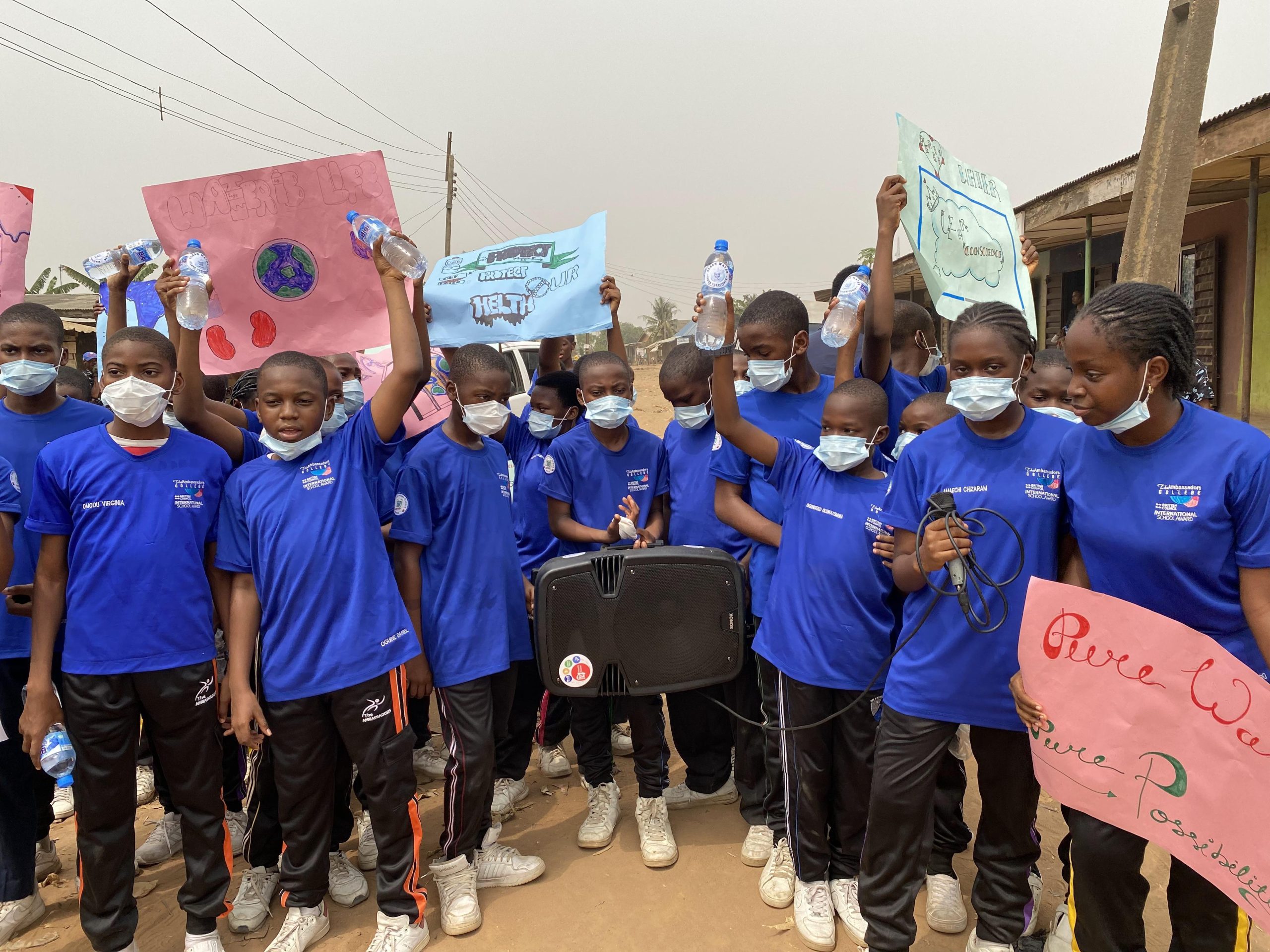
Students creating public awareness on global water challenges
Activity Period: February 26, 2024 - March 8, 2024
Relevant SDG(s): SDG 6: Clean Water and Sanitation
This activity directly addresses SDG 6 by raising awareness about the challenges of accessing clean water in developing countries. Students explored the health impacts of contaminated water, promoting the importance of ensuring universal and equitable access to safe drinking water.
Subject Areas: English, Science, Chemistry, Geography, ICT, Biology
Class: Grade 8 (ages 12-13)
Number of Students: 150
Teacher Responsible: Mr Nwagbo Nnaemeka. Other Teacher: Mr Abiodun Ojo
Activity Description:
Research and Presentations: Students were divided into small groups and assigned a specific country: Kenya, India, or Pakistan. Each group conducted research on water-related problems faced by their assigned country. This research involved exploring scientific concepts (chemistry) related to water contamination, geographical factors impacting water access, and the use of ICT for information gathering. Students then created presentations using their research findings, focusing on the health effects of using contaminated water.
Advocacy Campaign: Following their presentations, students participated in an advocacy campaign. They used their understanding of the challenges faced by vulnerable communities to advocate for the importance of clean and safe water. This involved exploring various communication strategies through English language skills and potentially creating posters or public awareness within the school community.
Aims:
Relevant SDG(s): SDG 6: Clean Water and Sanitation
This activity directly addresses SDG 6 by raising awareness about the challenges of accessing clean water in developing countries. Students explored the health impacts of contaminated water, promoting the importance of ensuring universal and equitable access to safe drinking water.
Subject Areas: English, Science, Chemistry, Geography, ICT, Biology
Class: Grade 8 (ages 12-13)
Number of Students: 150
Teacher Responsible: Mr Nwagbo Nnaemeka. Other Teacher: Mr Abiodun Ojo
Activity Description:
Research and Presentations: Students were divided into small groups and assigned a specific country: Kenya, India, or Pakistan. Each group conducted research on water-related problems faced by their assigned country. This research involved exploring scientific concepts (chemistry) related to water contamination, geographical factors impacting water access, and the use of ICT for information gathering. Students then created presentations using their research findings, focusing on the health effects of using contaminated water.
Advocacy Campaign: Following their presentations, students participated in an advocacy campaign. They used their understanding of the challenges faced by vulnerable communities to advocate for the importance of clean and safe water. This involved exploring various communication strategies through English language skills and potentially creating posters or public awareness within the school community.
Aims:
- To equip students with the knowledge of the negative health impacts associated with unclean water in specific countries.
- To develop students' communication and advocacy skills to promote access to clean water.
Outcomes
- Students gained a deeper understanding of the scientific and geographical factors affecting water quality.
- Students learned to research, analyze, and present information effectively using ICT tools.
- Students developed critical thinking skills by examining the health implications of contaminated water.
- Students honed their communication and advocacy skills by promoting the importance of clean water access.
Evaluation Evidence: Students presentations, Photographs, Feedbacks.
Impact:
This activity aimed to create a lasting impact on the students, the school community, and potentially, society at large. By fostering awareness about global water challenges, it encouraged students to become responsible citizens who advocate for sustainable solutions. Additionally, the activity might inspire further research or action projects within the school community, potentially involving fundraising or raising awareness campaigns about local water conservation efforts
Impact:
This activity aimed to create a lasting impact on the students, the school community, and potentially, society at large. By fostering awareness about global water challenges, it encouraged students to become responsible citizens who advocate for sustainable solutions. Additionally, the activity might inspire further research or action projects within the school community, potentially involving fundraising or raising awareness campaigns about local water conservation efforts

